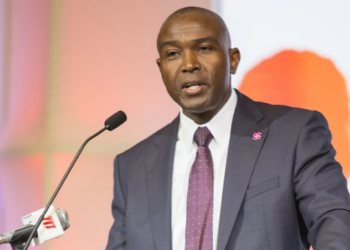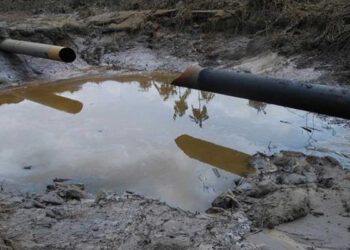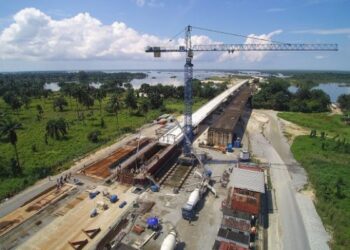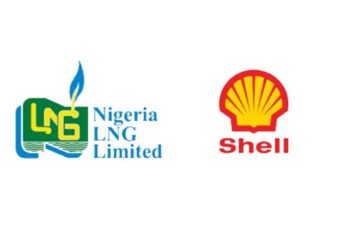Nigeria’s revenue crisis and gas shortage challenges appear set to worsen, after one of the country’s main foreign exchange earners, the Nigeria Liquefied Natural Gas (NLNG) Limited, declared force majeure on its 22.2 million ton per year Bonny LNG export facility.
Nairametrics gathered that the multinational gas firm took the action due to widespread flooding that has disrupted supply.
The development is coming as Nigeria battles its worst floods in about a decade, with no fewer than 500 people reported to have been killed and billions of naira worth of properties damaged.
The NLNG disclosed the development in a statement issued and signed by its General Manager in charge of External Relations and Sustainable Development, Mr. Andy Odeh.
The declaration could worsen Nigeria’s financial crisis and put further pressure on the global gas supply, as Europe and other major economies struggle to replace Russian gas exports.
What the NLNG Spokesman is saying
Andy Odeh said, “The notice by the gas suppliers was a result of high floodwater levels in their operational areas, leading to a shut-in of gas production which has caused significant disruption of gas supply to NLNG.’’
He noted that NLNG was determining the extent of the disruption and would try to mitigate the impact of the force majeure.
What you should know
The flooding, which has affected 28 out of the 36 states of the federation and some parts of Abuja, is said to have displaced an estimated 1.4 million people and destroyed thousands of hectares of farmland, thereby worsening fears of disruption of food supply in Nigeria.
- Authorities have blamed this year’s flood on water overflowing from some local rivers, unusual rainfalls, and the release of excess water from Lagdo Dam in neighbouring Cameroon’s northern region, which could continue into November.
- Nairametrics had earlier reported that Nigeria’s oil and gas exports could be at risk due to the high rate of flooding in Rivers, Delta, and Bayelsa states. Most of the communities in the oil and gas producing region are currently flooded, potentially placing oil and gas facilities at severe risk of shutting down production.
- NLNG’s supply had already been limited due to massive oil theft that has slashed output from what is typically Africa’s largest exporter.
- Nigeria relies on fossil fuel exports for 90% of its foreign exchange and roughly half its budget. Crude oil exports fell below 1 million barrels per day (BPD) on average in August, the lowest level since the 1980s, due to theft that has exceeded 80% on certain pipelines.
























I think the author does an excellent job of informing the reader about the current situation in Nigeria regarding floods and how it affects the production of natural gas.
I appreciate that they provide background information on why this is happening and how it could potentially affect Nigeria’s economy.
What I find concerning is that the author does not offer any solutions to the problem. With such a potentially devastating effect on Nigeria’s economy, it is essential to try and find ways to mitigate the damage.
I suggest the Nigerian government work with international organizations to aid those affected by the floods.
Additionally, they should try to improve their infrastructure to better withstand extreme weather conditions in the future.
Great post! Many thanks.